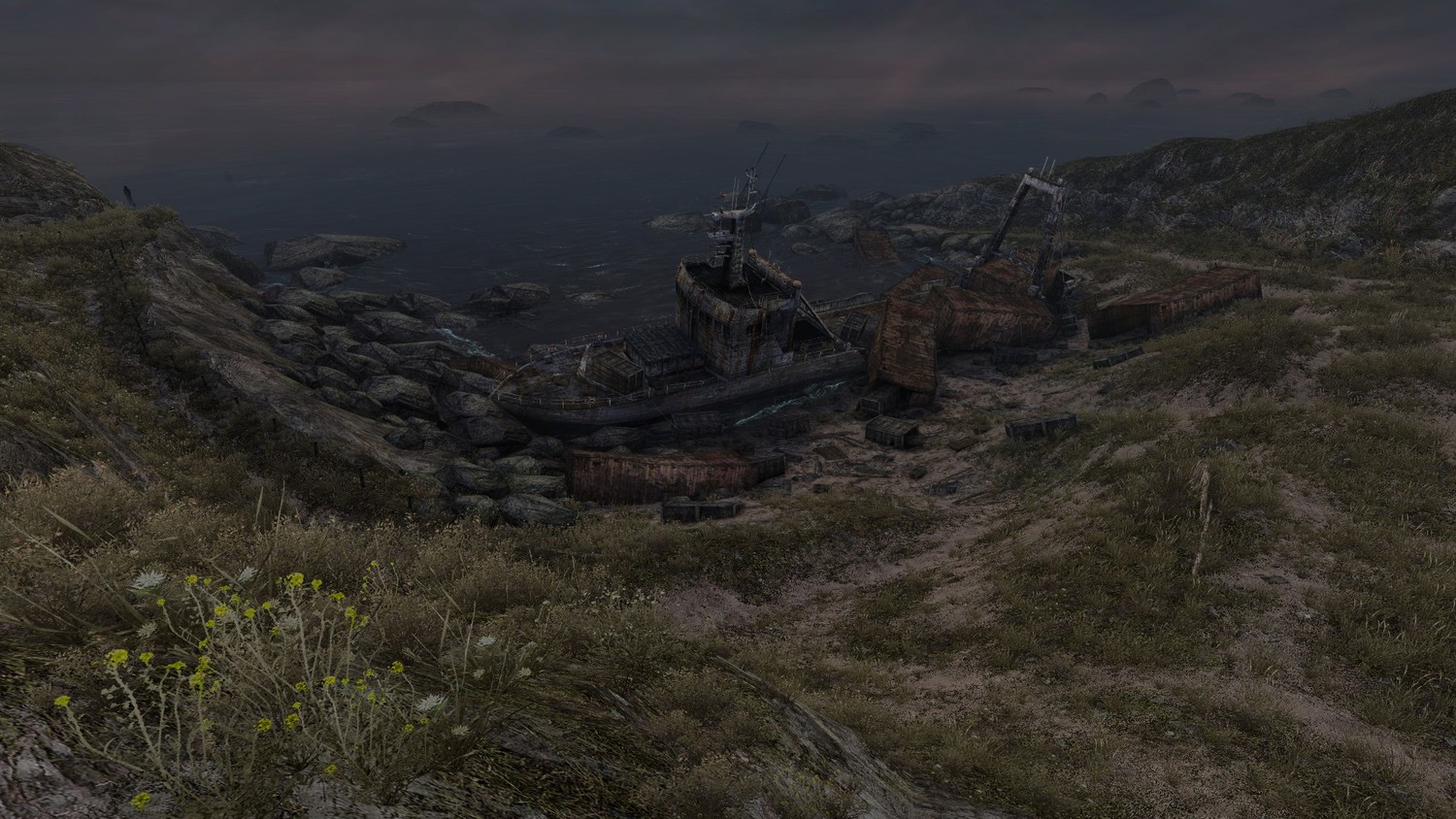
Review: Transistor
Posted by Curtis H on May 22nd, 2014 | 1 Comment | Tags: Transistor
The city of Cloudbank is under attack by a mysterious force known as the Process, a large number of well known people have simply vanished, and Red (a popular singer) is now without a voice. With only the Transistor (a mysterious and powerful weapon) at her side, Red sets out to learn the truth about the Process and to get back what is rightfully hers. The mysterious nature of the story means the less said the better. There’s a lot left up to interpretation and by the time the credits roll you’ll likely still be in the dark about certain aspects. That said, if you’re willing to dig deep enough, you’ll find that there’s quite a lot to speculate about even after the story is over.

Transistor is a mix between a strategy and action RPG. With the Transistor you can use an ability called Turn() to slow down time to queue different functions and build combos. Functions can be equipped as skills, upgrades, or passive buffs. Considering that there are 16 different functions in the game, all of which are quite different from one another, it should be obvious that there’s an immense amount of possible combinations to choose from. Finding the right combination of functions for the right scenario can easily turn the battle in your favor and is absolutely necessary in certain situations. While every combination I tried seemed equally viable, I tended to stick with a combo that saw me stacking an ability that greatly lowered enemy defense only to follow that up with a devastating blow. (Note: Even though Turn() does show the damage you’ll deal towards the enemies you’re attacking that doesn’t necessarily mean that it’s accurate. Some abilities knock enemies into the air or away from you meaning follow up attacks might not always land. You’ll need to plan carefully.)
The game encourages you to play around with the functions and to keep trying new things. With each function tied to a specific character you’ll need to use a function as a skill, upgrade, and passive ability in order to learn as much about them as you can. There’s a ton of depth to the combat in this game and by exploring that depth you’ll also learn much more about the world in which Transistor takes place.
If you’ve played Supergiant’s previous game Bastion then you should probably know what to expect from the presentation in Transistor. The artwork is amazing on its own, but there’s so many little details left throughout the world that by the end of my playthrough Cloudbank felt like an actual place. Kiosks throughout the city hinted at the way in which the city government worked, what people liked, and even how the weather was determined. Then you’ve got the soundtrack (by Darren Korb) which I’ll likely be listening to on repeat for a good long time to come. Ashley Barrett provides vocals for a handful of songs which for me prove to be the major standouts. (The credits song in particular is fantastic.)
Also similar to Bastion is the game’s side content and difficulty modifiers. Throughout Transistor you’ll find doors that lead to a beach with more doors that lead to different challenge rooms. Some of these will ask you to defeat a group of enemies with a set time limit, survive a set number of waves, or even defeat all enemies in a single turn. For the most part these challenges aren’t too difficult, but they are a great way to play around with the functions you might not use otherwise. You’ll also unlock limiters as you level up which change certain aspects of the game as well as make enemies tougher while granting a high experience boost. After finishing the game you can choose to play through on Recursion mode (New Game +) which completely changes the type of enemies you’ll fight in each area while also making a couple slight modifications to the story.

Even though this isn’t the first time Supergiant has done story narration through a single character I think Transistor is an improvement. People will have their preferences (and I think in some ways I might prefer the narrator in Bastion) but I do think the quality of the voice work is much better in Transistor. (Especially with one particular moment towards the end.)
It took me about forty minutes to fully grasp how the combat in Transistor worked, but once things clicked they never stopped. From there I went on to complete the game twice and finishing up any side content the game has to offer. Now I’m left with the soundtrack playing in the background as I attempt to draw my own conclusions about the story. I’m sure I could go on for a long time about how much enjoyment I got out of Transistor but I think it’s best if you just experience it for yourself.
A copy of this game was provided by the publisher for review purposes. For more info on our review policy click here.
General Info
- Developer: Supergiant Games
- Publisher: Supergiant Games
- Platforms: PS4 (Reviewed)
- Release Date: May 2014
- Price: $19.99
- Genre: Strategy RPG
Score:
What I Like:
- A whole bunch of different function combinations
- Interesting story/world
- Fantastic art direction
- Soundtrack
- Voice work is very well done
- Having the narrator come out of the controller was a nice touch. (Also a lot of other nice little details that would be too much to list here.)
What I Dislike:
- Not being able to easily access the "Backdoor" practice area.




